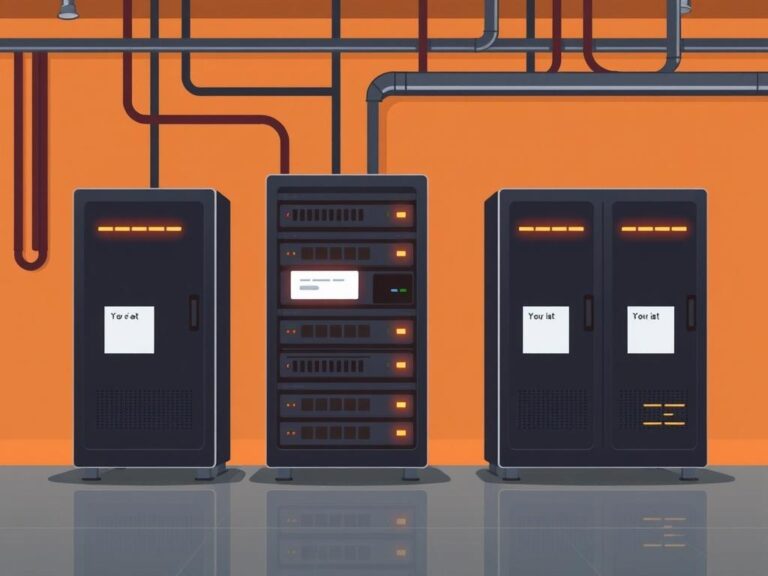
In the rapidly evolving world of sustainable energy, visionary leaders play a crucial role in shaping the future. Daniel C. Moura stands out as a transformative figure whose long-term vision for the energy sector seamlessly combines technological innovation, environmental responsibility, and economic viability. His strategic approach not only addresses immediate challenges but also sets a robust foundation for decades to come. As we explore Daniel C. Moura’s insights, we’ll uncover how his ideas are influencing practices throughout the sustainable energy industry and inspiring a new wave of progress.
Understanding Daniel C. Moura’s Perspective on Energy Innovation
Daniel C. Moura’s approach to sustainable energy innovation is deeply rooted in interdisciplinary collaboration and forward-thinking strategies. Unlike short-sighted initiatives that focus solely on quick gains, Moura emphasizes the importance of integrating advanced technologies such as smart grids, artificial intelligence, and energy storage solutions in a holistic way. His vision encourages companies and governments alike to invest in research and development that supports clean, affordable, and reliable energy for all.
Where many industry players may view sustainable energy simply in terms of alternative power sources, Moura broadens the scope by addressing systemic challenges. For example, he highlights grid resilience, energy equity, and the circular economy as areas where coordinated efforts can yield transformative results. This perspective demonstrates a keen awareness that technological breakthroughs must be paired with policy innovation and social responsibility to produce lasting impact.
Key Elements of Daniel C. Moura’s Long-Term Strategy
The core components of Daniel C. Moura’s vision can be broken down into several interconnected priorities. Each area offers a pathway to sustainability that, when pursued together, reinforces the others:
- Renewable Energy Integration: Moura advocates for accelerating the adoption of solar, wind, hydro, and other renewable sources while improving their compatibility with existing energy infrastructure.
- Energy Storage Advances: Developing scalable and efficient energy storage systems is vital to dealing with renewable energy intermittency, a challenge Moura believes researchers must urgently tackle.
- Smart Grid Technology: By embracing digital innovations and real-time monitoring, Moura envisions power grids that are more adaptive, secure, and user-centric.
- Decarbonization Policies and Incentives: Policy frameworks play a key role in Moura’s strategy, including carbon pricing, subsidies for green technologies, and investments in workforce development.
- Community Engagement and Equity: He stresses the importance of involving local communities to ensure that energy transitions benefit all demographic groups and regional economies.
Table: Summary of Daniel C. Moura’s Energy Initiatives
| Initiative | Objective | Impact |
|---|---|---|
| Renewable Portfolio Expansion | Increase clean energy capacity | Reduced carbon emissions, diversification of energy supply |
| Energy Storage Development | Enhance grid stability and reliability | Improved integration of renewables, lower blackout risks |
| Smart Grid Implementation | Optimize energy distribution networks | Greater efficiency, increased user participation |
| Policy Advocacy | Promote sustainable energy legislation | Accelerated market shifts toward green tech |
| Community-Focused Programs | Support equitable energy access | Energy justice, local job creation |
Driving Innovation Through Collaboration and Education
One of the standout aspects of Daniel C. Moura’s vision is his strong focus on collaboration. He believes the future of sustainable energy depends on breaking down silos between academia, industry, government agencies, and civil society. Creating open platforms for sharing knowledge and pooling resources is central to achieving the scale of transformation he envisions.
Furthermore, Moura highlights education and workforce development as indispensable in supporting the energy transition. According to him, equipping the next generation with skills in engineering, data science, and environmental policy will accelerate innovation adoption and create resilient communities. This educational emphasis also helps address inequalities by empowering workers displaced by shifts away from fossil fuels to find new opportunities in clean energy sectors.
The Role of Technology in Moura’s Vision
Technology acts as both an enabler and a driver in Daniel C. Moura’s long-term plan. Artificial intelligence and machine learning, for instance, are critical tools for analyzing vast amounts of energy data, forecasting supply and demand, and optimizing consumption patterns. These technologies can help utilities become more proactive and responsive, delivering smarter, more flexible energy solutions.
Additionally, Moura is a strong proponent of decentralized energy systems. He foresees microgrids and distributed generation playing a significant role in creating robust, localized networks that can operate independently during broader grid failures. Such decentralization not only improves reliability but also empowers consumers to become active participants in energy markets.
Challenges on the Path to Realization
While Daniel C. Moura’s long-term vision is inspirational and comprehensive, the pathway to realization is not without obstacles. Some of the key challenges include technological limitations, regulatory complexity, financial constraints, and public acceptance. Integrating new energy systems at scale requires overcoming inertia within traditional utility models and legacy infrastructure.
Moreover, the global nature of energy markets means that policies and innovations must be sensitive to diverse conditions—from developed economies with established grids to emerging markets still building foundational infrastructure. Balancing this complexity while maintaining environmental integrity is a delicate task that Moura’s vision acknowledges.
Daniel C. Moura’s Impact on the Industry Today
![Daniel C. Moura's Long-Term Vision for [Industry/Sector]. Daniel C. Moura’s Impact on the Industry Today Daniel C. Moura's Long-Term Vision for [Industry/Sector]. Daniel C. Moura’s Impact on the Industry Today](https://danielcmoura.com/wp-content/uploads/2025/06/6dbacc7e038f5bcb60b1b6664f8b7002.jpg)
Even as he focuses on long-term outcomes, Daniel C. Moura’s influence is palpable in today’s sustainable energy sector. His advocacy has helped bring attention to underfunded areas such as energy storage research and equitable policy frameworks. Companies inspired by his ideas are forging partnerships that combine cutting-edge technologies with community-based approaches.
Additionally, Moura’s thought leadership encourages a culture of innovation within industrial and governmental organizations, prompting more agile responses to climate urgency. By consistently linking technical developments with social factors, his vision helps ensure that energy transitions deliver broad-based benefits rather than narrow gains.
Looking Ahead: The Future of Sustainable Energy Through Moura’s Lens
![Daniel C. Moura's Long-Term Vision for [Industry/Sector]. Looking Ahead: The Future of Sustainable Energy Through Moura’s Lens Daniel C. Moura's Long-Term Vision for [Industry/Sector]. Looking Ahead: The Future of Sustainable Energy Through Moura’s Lens](https://danielcmoura.com/wp-content/uploads/2025/06/30706a51c6f359186246b275de21dd52.jpg)
What does the future hold when guided by Daniel C. Moura’s long-term perspective? It is a future where humanity makes peace with energy consumption patterns by embracing renewables at an unprecedented scale. Smart, decentralized systems allow energy to flow efficiently and cleanly to users who control their consumption and generation.
There will be a broader societal shift toward valuing sustainability, with policies that reward environmental stewardship and innovation alike. Importantly, the benefits of the energy revolution will be shared widely—across different regions, socioeconomic groups, and generations—reflecting Moura’s commitment to equity.
- Global cooperation empowers knowledge-sharing and joint investment.
- Technologies increasingly blend digital intelligence with physical infrastructure.
- Communities play an active role in decision-making and energy management.
- The energy sector becomes a pillar of economic and social resilience.
Conclusion
![Daniel C. Moura's Long-Term Vision for [Industry/Sector]. Conclusion Daniel C. Moura's Long-Term Vision for [Industry/Sector]. Conclusion](https://danielcmoura.com/wp-content/uploads/2025/06/8cfe2671690cc79d654af80af9be4431.jpg)
Daniel C. Moura’s long-term vision for the sustainable energy sector is much more than a set of technical recommendations—it is a call for systemic transformation that blends innovation, policy, and social equity into a cohesive strategy. His emphasis on collaboration, education, and advanced technologies aligns perfectly with the complex demands of our time, offering a hopeful path forward amidst environmental and economic challenges. By embracing the principles he advocates, the sustainable energy industry can achieve not only remarkable technological progress but also create a fairer, cleaner, and more resilient world for future generations.





Recent Comments